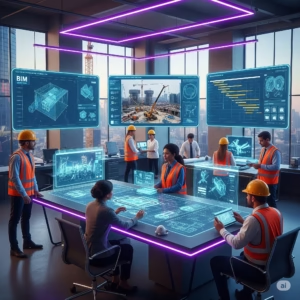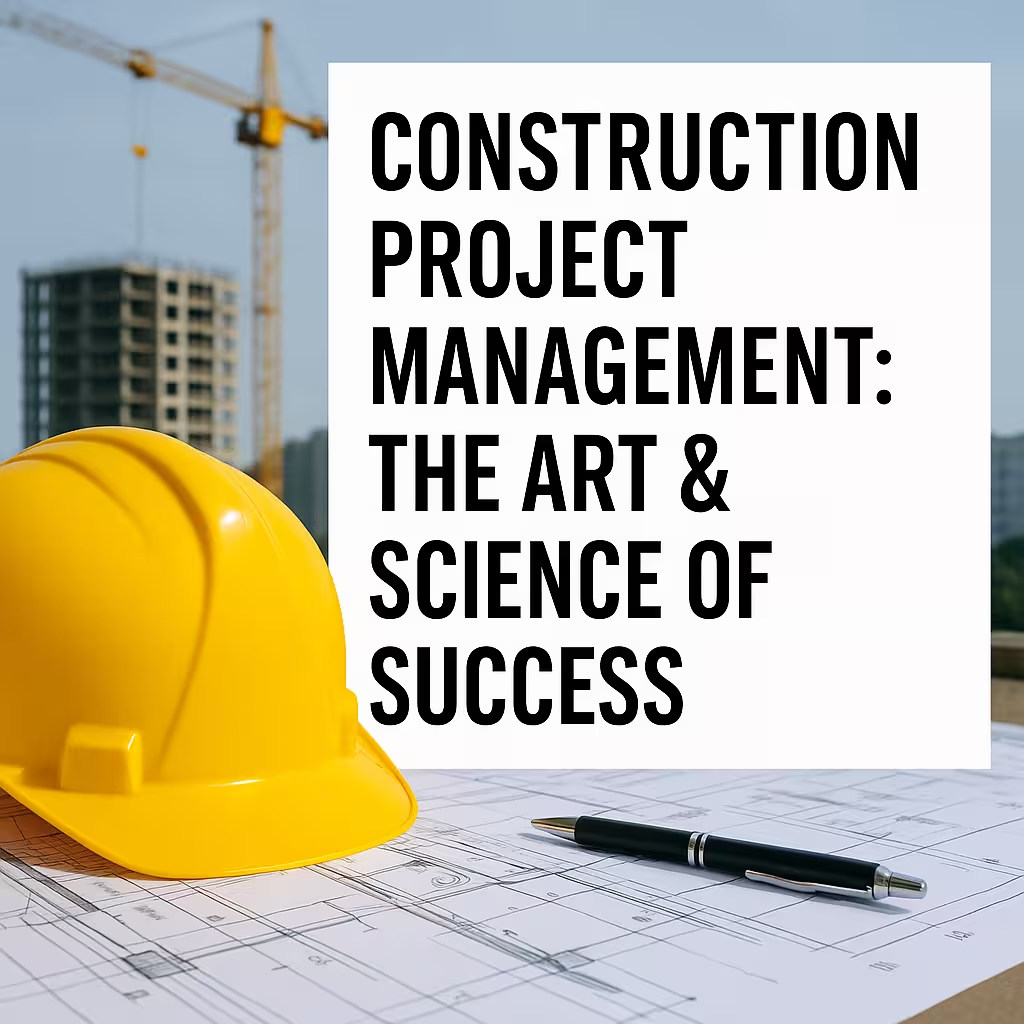Mastering the Balance Between Precision, Leadership, and Innovation in Building the Future
Construction project management is a high-stakes discipline that merges technical expertise with strategic leadership to transform blueprints into reality. Unlike other industries, construction faces unique challenges—tight deadlines, volatile material costs, regulatory complexities, weather disruptions, and the coordination of diverse teams. A successful project manager doesn’t just oversee tasks; they orchestrate a complex symphony of logistics, risk management, and communication to deliver structures that are on time, on budget, and built to the highest standards.
The Core Pillars of Effective Project Management

1. Strategic Planning & Scheduling
Every successful project begins with meticulous planning. Before breaking ground, managers conduct site assessments, feasibility studies, and secure zoning approvals. Detailed schedules—often visualized through Gantt charts or Critical Path Method (CPM) diagrams—break down each phase, from excavation to final finishes.
2. Budgeting & Cost Control
Financial oversight is critical. Experienced managers anticipate contingencies, secure buffer funds, and negotiate supplier contracts to lock in material costs before market fluctuations strike. Unexpected overruns can derail even the best-planned projects.
3. Risk Management & Safety Compliance
Construction sites are inherently hazardous. Proactive managers conduct regular safety audits, enforce OSHA compliance, and develop mitigation strategies for risks like labor shortages or extreme weather.
4. Stakeholder Communication & Collaboration
Keeping investors, inspectors, and teams aligned is key. Regular progress reports, BIM collaboration tools, and conflict resolution skills ensure smooth operations, even when disputes arise.
The Digital Transformation of Construction Management

1. Building Information Modeling (BIM)
BIM revolutionizes planning with 3D digital prototypes, enabling clash detection, cost estimation, and lifecycle management before construction begins.
2. AI & Predictive Analytics
Machine learning forecasts delays by analyzing historical data and weather patterns, while AI optimizes labor and material allocation.
3. Robotics & Automation
From bricklaying robots to autonomous heavy machinery, automation reduces labor dependency in an industry facing worker shortages.
4. Wearable Tech & Augmented Reality (AR)
Smart helmets with AR overlays allow workers to visualize installations without cumbersome blueprints, improving accuracy and efficiency.
The Human Factor: Leadership in Construction
1. Adaptability & Problem-Solving
Great managers pivot swiftly—whether handling design changes, subcontractor walkouts, or supply chain disruptions.
2. Team Dynamics & Conflict Resolution
With diverse teams (engineers, architects, tradespeople), clear communication prevents costly errors. Mediating disputes fairly keeps projects on track.
3. Emotional Intelligence & Morale
Long hours and high-pressure environments demand leaders who recognize burnout and foster a positive, productive worksite culture.
Sustainability & Regulatory Compliance
1. Green Building Practices
LEED certification, energy-efficient materials, and waste reduction are now industry standards. Sustainable builds cut long-term operational costs.
2. Modular & Off-Site Construction
Prefabrication minimizes waste and accelerates timelines, with components built in controlled factories.
3. Navigating Regulations
Managers must master local building codes, environmental permits, and labor laws to avoid fines or work stoppages.
The Future of Construction Management

1. AI-Driven Design & Blockchain Contracts
Generative AI may soon enable real-time design adjustments, while blockchain could streamline payments and contract management.
2. Smart Cities & IoT Integration
Buildings with embedded sensors will automate lighting, climate control, and maintenance, requiring new management approaches.
3. The Evolving Role of Project Managers
The best leaders will blend technical mastery with soft skills, using tech to enhance—not replace—human expertise.
Conclusion: Building Tomorrow’s World, One Project at a Time
In an industry where every decision has tangible consequences, construction project managers shape the world we live in. By embracing innovation while upholding timeless principles of leadership and planning, they ensure that the structures we rely on are not just built—but built to last.


